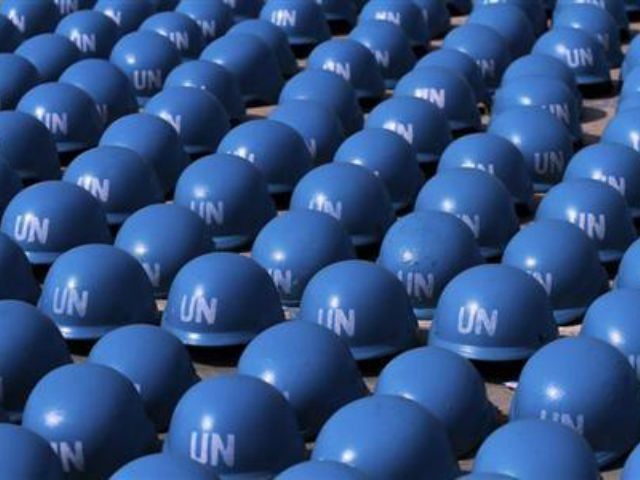Many incidents of sexual exploitation perpetrated against children by United Nations peacekeepers go unreported, the U.N. acknowledged.
U.N. Secretary-General Ban Ki-moon has referred to the rate of sexual abuse committed by peacekeepers as a “cancer,” after the issue made headlines last week when Amnesty International accused a U.N. police officer of raping a 12-year-old Muslim girl.
In response, Ban has “fired the head of the peacekeeping mission, a first,” reports the Associated Press (AP).
“He also announced measures to pressure member states for accountability, including the suspension of payments to countries for troops who face credible allegations of misconduct,” adds the report.
Since it has no standing army to provide protection to vulnerable areas across the world, the U.N. relies on 105,000 troops and police, known as “blue helmets,” primarily from developing countries from Africa and South Asia. They appreciate the $1,000-plus per person per month they are paid for their services.
“Too many incidents go unreported,” the U.N. secretary-general told a special the Security Council last week.
“Too few cases are prosecuted,” he also said, later adding that there are “far too lenient sanctions for such grave acts affecting men, women and, all too often, children” and stated that the failure to pursue criminal accountability for sexual crimes was “tantamount to impunity.”
Sexual abuse is defined by the U.N. as “actual or threatened physical intrusion of a sexual nature,” and it bans “exchange of money, employment, goods or services for sex.”
Getting U.N. members states to prosecute U.N. “blue helmets” for sexual deviancy has reportedly proven to be a challenge.
“This summer, the U.N.’s internal oversight office reported that several countries hadn’t said whether they planned to investigate alleged sexual misconduct by their peacekeepers, even though they’re supposed to say so within 10 days,” notes AP. “The list included both Rwanda and Cameroon, as well as Ecuador, Gambia, Guinea-Bissau, Mali, Vanuatu, Zambia, Guinea and Uganda.”
“Senior officials in peacekeeping missions saw countries’ investigations as unreliable and ‘powerfully motivated to exonerate their personnel,’” said the U.N. report, according to AP.
In a rare move, the report identified 31 countries whose peacekeepers faced sexual abuse accusations from 2010 to 2013.
“South Africa had nine allegations, followed by Uruguay with eight and Nigeria with seven,” reports AP. “An allegation can be against multiple people, and there’s no way for the public to know how many are accused.”
“Even when allegations are substantiated, often no action is taken. In 2013, the most recent year for which such data was available, countries punished their troops or police in just over half of such cases,” it adds. “Of the 16 cases, the U.N. repatriated people in 12. Countries then jailed their citizens in five cases, dismissed them in two and demoted or suspended them in two, as of the end of last year.”
There was no punishment listed for some U.N. peacekeepers who were returned to their country of origin after they were accused of child sexual abuse, including the abuse of a half-dozen children in Haiti by multiple U.N. “blue helmets.”
“The U.N. says it has no way to vet for past misconduct each of the more than 200,000 people who rotate through six-month peacekeeping stints every year,” notes AP

COMMENTS
Please let us know if you're having issues with commenting.